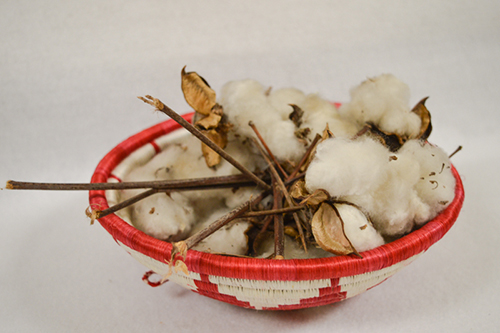
“I’ve been blessed in my life to have someone like my grandfather, who I only had for 8 years, but his legacy forever”
For Amina, her father’s father was never “grandfather.” Instead, he was “Professor Carter.”
He started a school right in the church he built on his land. And he taught the farm kids. He wanted his children to learn to read and write and to sign their names, because he wanted them to own property and to take care of themselves and the community.
Amina went to her grandfather’s school, and she learned much more than reading and writing from Professor Carter — he also instilled in her the importance of service.
He used to tell me, when I can barely remember speaking to an adult, ‘You can be anything you want to be. I want you to get an education. I don’t want you to let your sex get in the way of things. I want you to help people, and I want you to serve because if you serve people, others will always serve you.’ And so I always worked hard in school I’m not a brain or anything, but I always worked hard. And I’ve always held positions of service, because my grandfather always said, “If you serve others, others will serve you.’
When she moved to California at the age of ten, Amina found out for the first time about the racism amidst which she grew up in rural Mississippi. Professor Carter had gracefully shielded her and her cousins from these conditions.
I was so angry when I became a teenager out here, and I learned about the racism in Mississippi.
I didn’t know about the racism that was swirling around me when I grew up, and all the things my grandfather and the other elders had to go through at the time. They used to have parties every night and hang a black person just for sport. And my grandfather went through all of that but he wouldn’t tell us about it. He could have filled our heads with a lot of hate, but he didn’t. He taught us love – that we should love everybody, and help everybody.
While Amina only had Professor Carter in her life for eight years, she sees his influence as immeasurable, and inescapable. She’s dedicated her life to service positions – as a member of the State Assembly, and of the School Board, and today in her mission to preserve African American history in the Inland Empire. In moments of distress she turns to the cotton on display for inspiration.
This cotton is so significant to me because it was a way of life that brought me to where I am. Because my family were cotton farmers, and it gave them the resources to move on. And it was a life that was both torturous and rewarding, because it gave them a way out . When I get really frustrated and depressed and think, ‘I’m not going to be able to finish this,’ I go and look at the cotton and I think of my grandfather and everything he taught me and how he protected me. It represents all that is good in the world, because that’s what he taught me.
Amina’s service to the community has been recognized in many ways, including with the opening of Amina Carter High School in Rialto in 2004. With the school, and her project to preserve local Black history, Amina continues her grandfather’s legacy by making an impact that will span generations.
Even if you want to change it when you’re an adult, what you learn as a child sticks to you pretty much. My grandfather said that I was special, and that I was his favorite. Now, in later years, as we’d go home for reunion and all of us are grown and sitting out in the cemetery, talking to our deceased elders, and I sit around and tell everybody I’m grandpa’s favorite, they all laugh: ‘He’s a teacher, he told us all that.’ But I believed him! That’s the goal, always – to have things last beyond you.